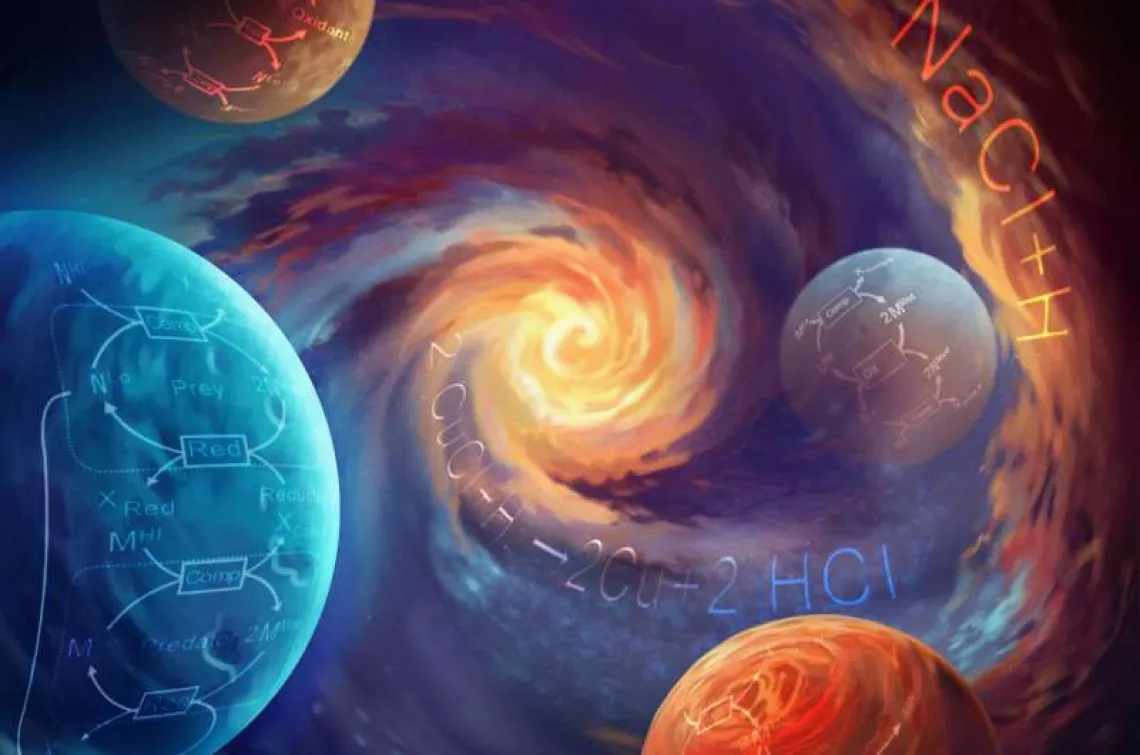New Recipes for Origin of Life May Point Way to Distant, Inhabited Planets

Life requires repetition of chemical reactions. Describing the kinds of reactions and conditions required for self-sustaining repetition—called autocatalysis—could focus the search for life on other planets.
Credit: Betül Kaçar
Life on a faraway planet—if it's out there—might not look anything like life on Earth. But there are only so many chemical ingredients in the universe's pantry, and only so many ways to mix them. A team led by scientists at the University of Wisconsin–Madison has exploited those limitations to write a cookbook of hundreds of chemical recipes with the potential to give rise to life.
Their ingredient list could focus the search for life elsewhere in the universe by pointing out the most likely conditions—planetary versions of mixing techniques, oven temperatures and baking times—for the recipes to come together.
The process of progressing from basic chemical ingredients to the complex cycles of cell metabolism and reproduction that define life, the researchers say, requires not only a simple beginning but also repetition.
"The origin of life really is a something-from-nothing process," says Betül Kaçar, a NASA-supported astrobiologist and UW–Madison professor of bacteriology. "But that something can't happen just once. Life comes down to chemistry and conditions that can generate a self-reproducing pattern of reactions."
